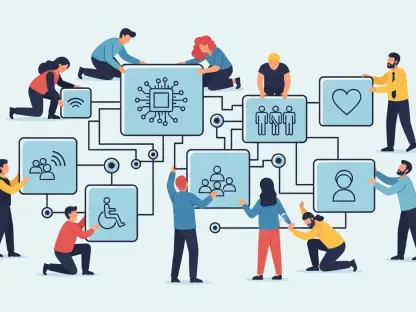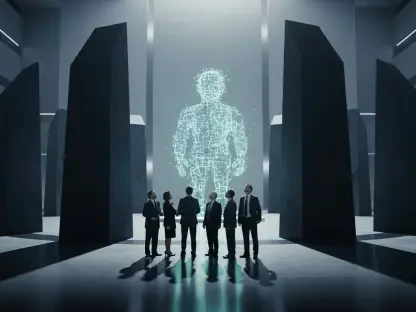Artificial Intelligence is changing how we socialize, work, and even remember. While AI chatbots offer exciting possibilities for enhanced user interactions, recent research raises ethical and practical concerns. Specifically, a comprehensive study investigated how conversations with AI-powered large language models (LLMs) can lead to the formation of false memories—recollections that either did not occur or are significantly different from actual events. This article aims to delve into the study’s findings, potential ramifications, and the larger implications for society.
The Frailty of Human Memory
Human memory is not like a video recorder that flawlessly captures and stores every detail. Instead, it is inherently reconstructive and subject to external influences. Expectations, cultural contexts, and even the words we hear can shape what we remember. Previous research has documented how misinformation, deepfake content, and interactions with social robots can corrupt our memories. These findings indicate that human memory is far more malleable than we may like to admit, especially when subjected to external influences, whether human or artificial.
Research has long established that memory can be easily influenced through a variety of means. For example, studies have shown that simply changing the wording of a question can alter a person’s recollection of an event. This phenomenon is especially concerning in environments where accurate memory recall is essential, such as in legal settings. By understanding just how malleable memory can be, researchers have laid the groundwork for exploring more modern influences on memory formation, which include AI chatbots and large language models.
Previous Research on Memory Distortion
The body of research on memory distortion includes various forms of technological influences, from social robots to deepfake videos. For instance, some studies highlighted how social robots, when interacting with humans, could introduce inaccuracies into our memories. These distorted memories can be convincingly held, even when they are completely fabricated. Neuroimaging techniques have also been employed to differentiate between true and false memories by identifying distinct neural activation patterns. However, these methods are often impractical due to their high costs and complexity, thus limiting their applicability in real-world situations.
Another area of research has explored the effects of computer-generated misinformation on memory. Articles and videos that present fabricated information can have a lasting impact, causing individuals to believe in events that never happened. With the advent of AI, these findings suggest that chatbots and other AI systems could similarly distort memory. The question then becomes, how do these technologies influence our recollections? Understanding these dynamics is crucial as AI continues to permeate various aspects of our lives.
The Unique Contribution of AI Chatbots
While previous studies have explored the influence of different technologies on memory, this particular study fills a critical research gap by focusing on conversational AI, specifically large language models, as memory disruptors. The researchers sought to understand how AI chatbots could act as interrogators in a simulated witness scenario, potentially instilling false memories. This focus on generative chatbots, which can engage in more fluid and natural conversations, is particularly relevant given their growing use in customer service, mental health, and other sectors.
Generative chatbots are designed to simulate human-like conversations, making interactions feel more natural and believable. This capability raises important questions about their impact on memory. By acting as seemingly credible sources of information, these chatbots can inadvertently or intentionally introduce false details into a person’s recollection of events. The study investigates this interaction, aiming to uncover the extent to which generative chatbots can produce false memories and the confidence levels associated with these distortions.
Study Methodology: An In-Depth Look
Researchers from MIT Media Lab and the University of California designed a two-phase study involving 200 participants. The participants were randomly assigned to one of four conditions: control, survey-based, pre-scripted chatbot, and generative chatbot. The aim was to systematically compare how different types of interactions could influence memory formation and recall in a witness scenario. In Phase 1, participants first watched a silent two-and-a-half-minute CCTV video of an armed robbery. Following this, they interacted with their assigned conditions. The survey-based condition involved answering questions via Google Forms, with five of these being intentionally misleading. The pre-scripted chatbot asked the same set of questions, whereas the generative chatbot, powered by an LLM, provided feedback based on user responses, potentially reinforcing false memories. Participants then answered another set of questions to measure their true recollection of the event.
In Phase 2, a week later, participants were asked the same set of questions to assess the durability of any induced false memories. This two-phase approach enabled the researchers to evaluate both immediate and long-term effects of different interaction methods on memory recall and retention. By comparing results from both phases, the study aimed to discern not only the short-term influence of AI chatbots but also their long-lasting impact on memory distortion.
Results That Speak Volumes
The study’s findings were compelling. Short-term interactions with generative chatbots significantly induced more false memories compared to other conditions, and participants misplaced higher levels of confidence in these inaccuracies. Specifically, the generative chatbot condition produced a substantial misinformation effect, influencing 36.4% of users, compared to 21.6% in the survey-based condition. This indicates that AI chatbots are highly effective at instilling false memories in a relatively short period of time, raising concerns about their use in scenarios where accurate memory recall is vital.
Interestingly, the number of false memories induced by the generative chatbot remained constant even after a week. On the other hand, false memories in the control and survey conditions increased over time. This result underscores the unique influence of generative chatbots in both the immediate and long-term distortion of memories. The persistence of these false memories suggests that interactions with AI chatbots could have lasting effects, making it crucial to understand and manage their impact.
Who Is Most Susceptible?
Several user characteristics were identified as moderating factors influencing susceptibility to false memories. Individuals with less familiarity with chatbots, but greater familiarity with AI technology in general, were more prone to memory distortions. Additionally, participants with a higher interest in crime investigations were more likely to experience false memories. These findings underscore the complex relationship between user characteristics and susceptibility, highlighting the need for nuanced approaches in deploying AI systems.
The study’s identification of susceptibility factors is significant. It suggests that individual differences play a crucial role in how AI interactions influence memory. By understanding these factors, developers and policymakers can create more targeted strategies to mitigate the risk of memory distortion. This is particularly important as AI becomes more integrated into various sectors, including those where accurate memory recall is crucial, such as in legal and psychological settings.
Ethical and Practical Considerations
The potential for AI to distort human memories brings about serious ethical concerns, especially for sensitive contexts like legal proceedings and eyewitness testimonies. If generative chatbots can induce false memories, their use in interrogations or therapeutic settings could have far-reaching consequences for justice and mental health. Ethical guidelines must be established to mitigate these risks, ensuring that AI systems respect the integrity of human memory and decision-making processes. As AI continues to integrate into our daily lives, it is crucial to consider these ethical dimensions to prevent misuse and potential harm.
Beyond ethical guidelines, practical measures are also necessary to manage the risks associated with AI chatbots. These could include more stringent regulatory frameworks and ongoing education for users and developers about the potential impacts of AI on memory. By taking a proactive approach, society can better harness the benefits of AI while minimizing its risks. This balance is essential for the responsible development and deployment of AI technologies.
Future Research Directions
This study lays a robust foundation, but further research is necessary to understand better and mitigate the impact of AI on memory. Future studies could explore a broader range of AI interaction scenarios and examine the effects on different demographics to develop a more comprehensive understanding. Additionally, researchers could investigate potential interventions to counteract the memory-distorting effects of AI, ensuring that these technologies are used responsibly and ethically.
Continuing to explore the intersection of AI and human memory is crucial as these technologies become increasingly integrated into our lives. Further research could also focus on developing best practices and guidelines for AI developers, ensuring that memory-distorting effects are minimized. By building on the findings of this study, future research can help create a more nuanced and responsible approach to AI development and deployment, ultimately benefiting society as a whole.
Synthesis and Conclusion
Artificial Intelligence is revolutionizing how we interact socially, perform our work tasks, and even retain memories. AI chatbots, while bringing forth fascinating opportunities for improved user experiences, also introduce ethical and practical dilemmas. A recent in-depth study sheds light on one such critical issue: the ability of AI-driven large language models (LLMs) to create false memories. These are memories of events that either never happened or are significantly altered from what truly occurred.
The study’s findings suggest that interactions with AI can distort our recollections, raising significant concerns about the potential impact on our perceptions of reality. This article delves into the research outcomes, exploring the ramifications for individual users and society at large. By understanding how LLMs can influence memory, we can better manage their integration into everyday life. As AI technology continues to evolve, recognizing its power to shape our mental records is crucial for developing guidelines and safeguards, ensuring that these systems enhance rather than compromise our cognitive integrity.









